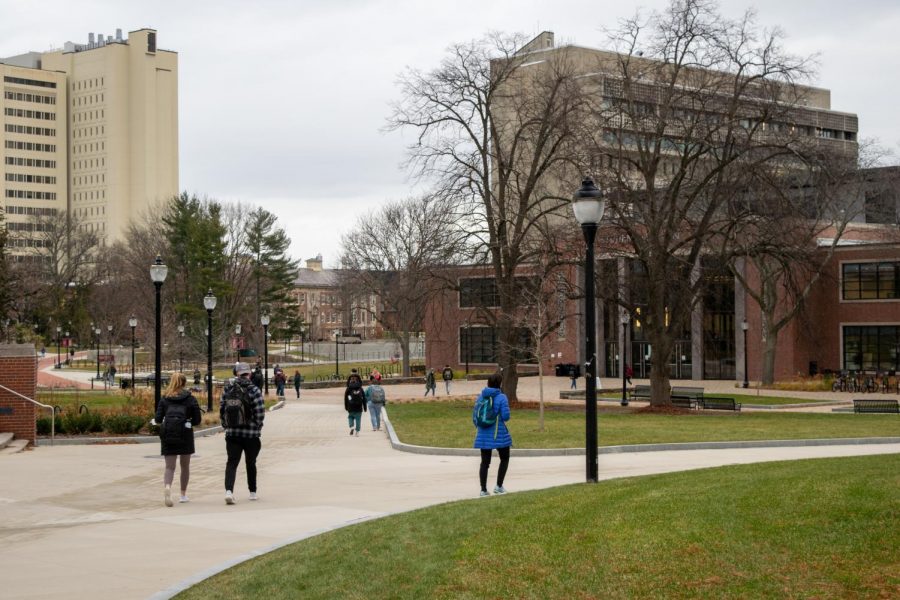Protests in Puerto Rico have grown commonly throughout the island following the passing of law PC1003. This law is an austerity measure that is controversial for its intent in making the working class of Puerto Rico suffer through financial loss and have students in the public education system pay for an increased tuition in the island. The budget cuts are powerful enough to close college campuses and end entire departments within the public universities of the island.
The University of Mayaguez was the first to demand an academic strike to stop the efforts of PC1003.
“I went to the protest” said Andrea Rodriquez Goveo from the University of Rio Piedras (UPRRP). “the protests lasted for about 2 months. I was left without classes for a month.”
Students protested in their campuses, the capitol building in San Juan, the largest mall in the island Plaza las Americas, and some protests even took place in New York City. Rodriquez Goveo describes “one cannot really see the problem until you are in the shoes of a protester. They (the police) threw gases at us when it was a peaceful protest. The administration needs to listen to us.”
Classes in UPRRP were mostly online, starting the protests at the beginning of November. Some of the classes in the University were put at a halt to allow students to participate in the protests and others were still being taught per the professor’s beliefs.
Claudia Figueroa Pabon, a freshmen engineering major at the University of Massachusetts, describes her friend in the UPRRP school: “For my friend, it’s been like an extension of a bad senior year in high school.”
What the freshman students first thought would be a new beginning and a semester of education quickly turned into the students needing to participate in protests in order to demand an affordable and effective education.
Echevarría describes the current state of UPRRP, “students are super stressed, they don’t know how they’re grades are going to be. They have to pay extra for another semester to finish up classes. It’s really unpredictable and students are tip-toeing around their education.”
Another misstep is the availability of professors and sections within the college at the moment. “The biology department is not accepting anyone,” said Rodriquez Goveo.
The biology department of the University of Puerto Rico Rio Piedras has one of the most rigorous programs in the island. The field has a student population of 1,123 in the department, with only 26 professors for the program. Through a group of professors and grants from NIHS (National Institute of Health), the program was able to create a genome of the COVID-19 virus. While having a successful program, the university was still faced with damages from hurricane Maria, and the overwhelming budget cuts from the government.
Senior biology major Cristina Echevarría attended UPRRP before coming to UMass. She describes her time in Rio Piedras: “the quality of education is really good and some of my professors were devoted but weren’t getting paid enough. They wanted their students to learn”
Echevarría noticed the efforts of professors, re-counting how some professors in the field were volunteering from other schools without pay to help students learn.
The budget cuts were obvious in the biology laboratories that Echevarría had participated in. “If you break one pipette, they don’t have more instruments to replace it.” Echevarría was frustrated with the situation: “there is lack of funds, resources, everything . . .there are barely enough sections for students.”
The University is also facing structural issues. “After the hurricane some of the classrooms were filled with mold. The mold was there for years after,” Echevarría said. “It’s sad that they think they can cut more funds when there’s barely any.”
“You’re paying for campus facilities and laboratories that can’t be used” UPR student Rodriquez Goveo expresses, “The buildings are not in good condition”
Law PC1003 would be hurting faculty and staff as well. The UPRRP sees a 5% reduction in the pay of teaching and non-teaching part-time staff. For trusted personnel, there would be a 3% decrease including sick leave and excess accumulated leave.
Because the University’s funds are frozen at the moment there is also a freeze in retired staff’s income as well. Echevarría mentions that “some professors are left without money for them and their children.”
University students have been protesting this event for a long time. Claudia Figueroa Pabon was living in Puerto Rico in 2017 when students were protesting high tuition prices. Figueroa Pabon describes the protests as they are “intensifying” and becoming “more common”
Figueroa Pabon states her opinion on the end of the protests: “It’s always been in a stand-still. It has never been any other way. I have hope that things will change because they have to change. Other successful protests in the past have made me more hopeful.”
“I don’t think there’s gonna be an end if there is no end to the situation with our government. They are going to keep finding money from people who don’t have it,” said Echevarría. “There’s so many people that want to save their education. The public university is what people want to offer the students of PR.”
Ariana Gonzales can be reached at [email protected].




















